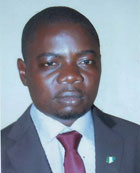International Journal of Gender and Women’s Studies, 1(1), pp. 45-55.
Abstract
This paper is an exploration of the role of women in the Nigerian politics. The inferiority complex of women regarding active political participation and representation constitute the bane of this study. However, it was argued by Karl Marx that the inferiority nature of women generally, was a function of chauvinistic nature of men to perpetuate their domination on them in all ramifications. This gender bias in Nigeria’s political system is often traced to the onset of colonialism in Nigeria. Thus the western cultural notion of colonialism woven around male superiority reflected in their relations with Nigerians. The authors adopted both conceptual and theoretical analysis of issues on political participation and representation, to ascertain how women are generally dominated by men in the scheme of things. The most critical element of this discourse is however that women are, and have been sidelined in the political scheme of things in Nigeria and this state of affairs spells a dangerous omen for the Nigerian system which is now literally dominated and controlled by men. In the past, experience has shown, of course as demonstrated in the study, that women’s political roles have contributed immensely in the shaping of the Nigerian politics not only in democratic governance; but also during the pre-colonial era.
Full Text: PDF
Erunke, Canice Esidene. & Abdul, Umar Shuaibu. (2013). The Role of Women in Nigerian Politics: Addressing the Gender Question for an Enhanced Political Representation in the Fourth Republic. International Journal of Gender and Women’s Studies, 1(1), pp. 45-55.
Agbalajobi, D.T. 2010. “Women‟s Participation and the Political Process in Nigeria: Problems and Prospects”, African Journal of Political Science and International Relations, 4(2) pp 75-82.
Anifowose, R. 2004. Women Political Participation in Nigeria: Problems and Prospects in Akinboye, S.O. (eds) (2004). Paradox of Gender Equality in Nigerian Politics. Lagos: Concept publications.
Arowolo, D. 2000. “Women and Political Participation in Nigeria”. European Journal of Social Sciences, 14 (4).
Erunke, C.E. 2009. “The Nigerian politics, Women Rights and the Challenges of the Affirmative Action: A Historical Periscoping”, Journal of Law and Diplomacy, 6(2) pp. 29-33.
Erunke, C.E. 2012. “Consolidating Democratic Governance in Nigeria: Analysis and Suggestions”, African Journal of Social Sciences 2(2) pp. 67-73. London, United Kingdom.
Etzioni, A. 1970. “Power as a Societal Force”. In Power in Societies. London: The Macmillan Co.
Kira, S. 2003. “Gender Related Knowledge and the Descriptive Representation of Women”. Pol. Behav. 25(4). Lawson, C.C. and Wasburn, P. 1969. Power Participation Ideology. New York: Free Press.
Maclosky, H. 1968. “Political participation”, International Encyclopedia of the Social Sciences. New York: Collier Macmillan.
Ogunsola, O. 1993. “Women in Intra-party politics” in Clara, O. and Nina, M. (eds), Nigerian women in politics (1986/1993). Pp 77-96.
Ogwu, J. 1996. “Perspectives on Critical Impediments to women in Decision-making process” in Clara, O. and Nina, M. (eds), Nigerian women in politics (1986-1993).
Okpalaobi, B.N. 2011. “The Dynamics of Sexual politics in Nigeria: A Catalyst for Gender Bias”. Journal of Emerging Trend in Educational Research and Policy Studies, 2(6) pp. 471-478.
Okuosa, A. 1996. “Women in Elective position in the Transition period 1989-1993” in Clara, O. and Nina, M (eds) Nigerian women in politics (1986-1993), Lagos: Malthouse press Ltd. Pp. 108-126.
Tor, J.T. and Terkula, G. 2011. “Women on Edge: Interrogating Gender and Governance in Nigeria‟s Fourth Republics”. Nigerian Journal of Politics and Administrative Studies, 2(2).
Yetunde, G.A. 2003. Nigerian Women in Politics: A study of the Role of Women in President Obasanjo‟s Administration 1999-2003 in Falola, T. et al (eds) African Women and Cultural Affairs. Lagos: Dalton press.

Erunke Canice Esidenehails from Utugwang in Obudu LGA,Cross River State. He attended Community Secondary School,Utugwang between 1984-1988.He then proceeded to Mary-Knoll College,Ogoja in 1989 and graduated in 1990.He is presently a research Assistant/ Lecturer with the Nasarawa State University,keffi, Department of Political Science. He holds a bachelors and Masters degree in Political Science, Nasarawa State University,Keffi.He is currently a PhD research candidate at the Benue State University, Makurdi, Nigeria.His area of specialization is Public Administration and Public Policy Analysis. He has several academic awards including Certificate of Merit, Best Graduating Student (2005),Nasarawa state University, keffi, Department of Political Science; Certificate of Merit,National Association of Political Science Students(NAPSS),(2003/2004); award as excellent Reviewer of the year(2009),University of Taipei in Taiwan. His research interest includes Public Policy Analysis, Democracy and Good Governance, Women Rights Studies, Politics of the Environment,Security and Peace Studies, etc.He is widely published in reputable peer-reviewed academic journals of both national and international standards(spread across United Kingdom, Canada, Africa, USA, Macedonia, India,etc) with over 30 articles(journal articles and book chapters), to his credit. Erunke Canice is a member of National Political Science Association(NPSA);member, Council for American Students in International Negotiations; member, International Studies Association(ISA),USA;member,Peace and Collaborative Development Network; member, Contemporary Management Research, and member, International Research and Development Network(IRDI). Erunke Canice is Departmental secretary, and coordinator,400 Level, Department of Political Science,Nasarawa State University,keffi,Nigeria.
Shuaibu Umar Abdul
Department of Political Science
Nasarawa State University, Keffi
P.M.B. 1022, Nigeria
West Africa
Browse Journals
Journal Policies
Information
Useful Links
- Call for Papers
- Submit Your Paper
- Publish in Your Native Language
- Subscribe the Journal
- Frequently Asked Questions
- Contact the Executive Editor
- Recommend this Journal to Librarian
- View the Current Issue
- View the Previous Issues
- Recommend this Journal to Friends
- Recommend a Special Issue
- Comment on the Journal
- Publish the Conference Proceedings
Latest Activities
Resources
Visiting Status
| 1997 | |
| |
3539 |
| |
31902 |
| |
20661 |
| 2367127 | |
| 8 |
 The Brooklyn Research and Publishing Institute
The Brooklyn Research and Publishing Institute